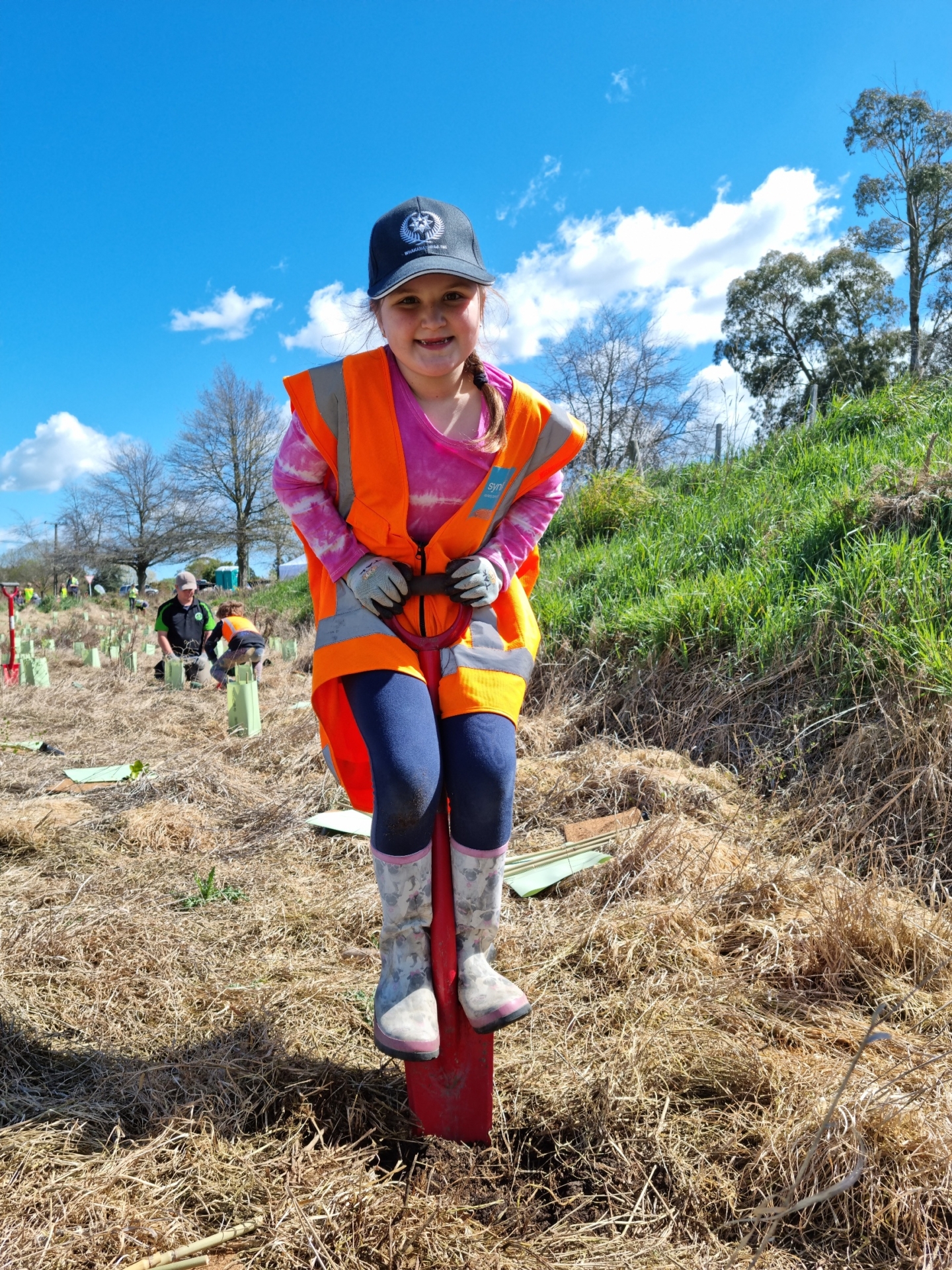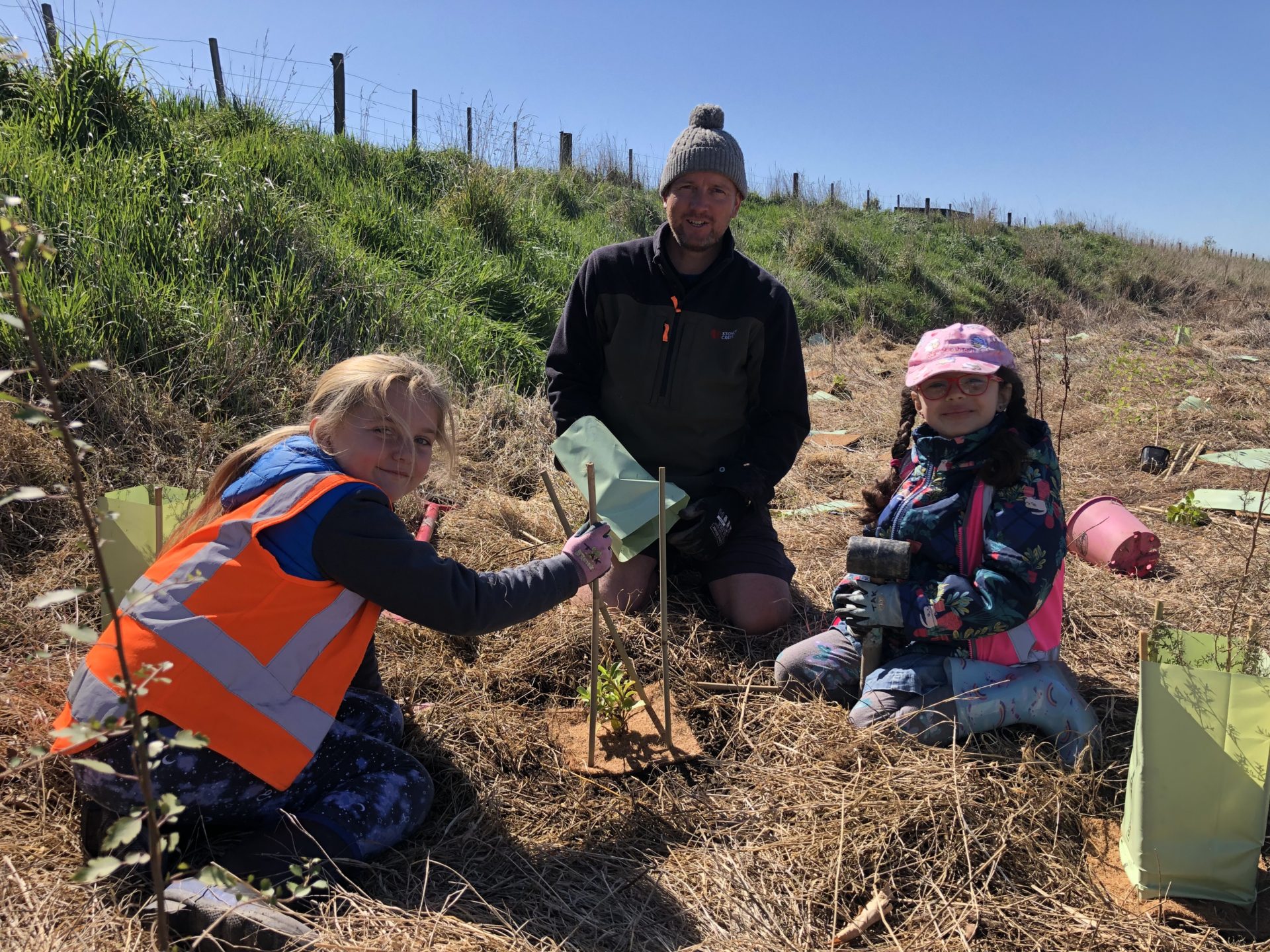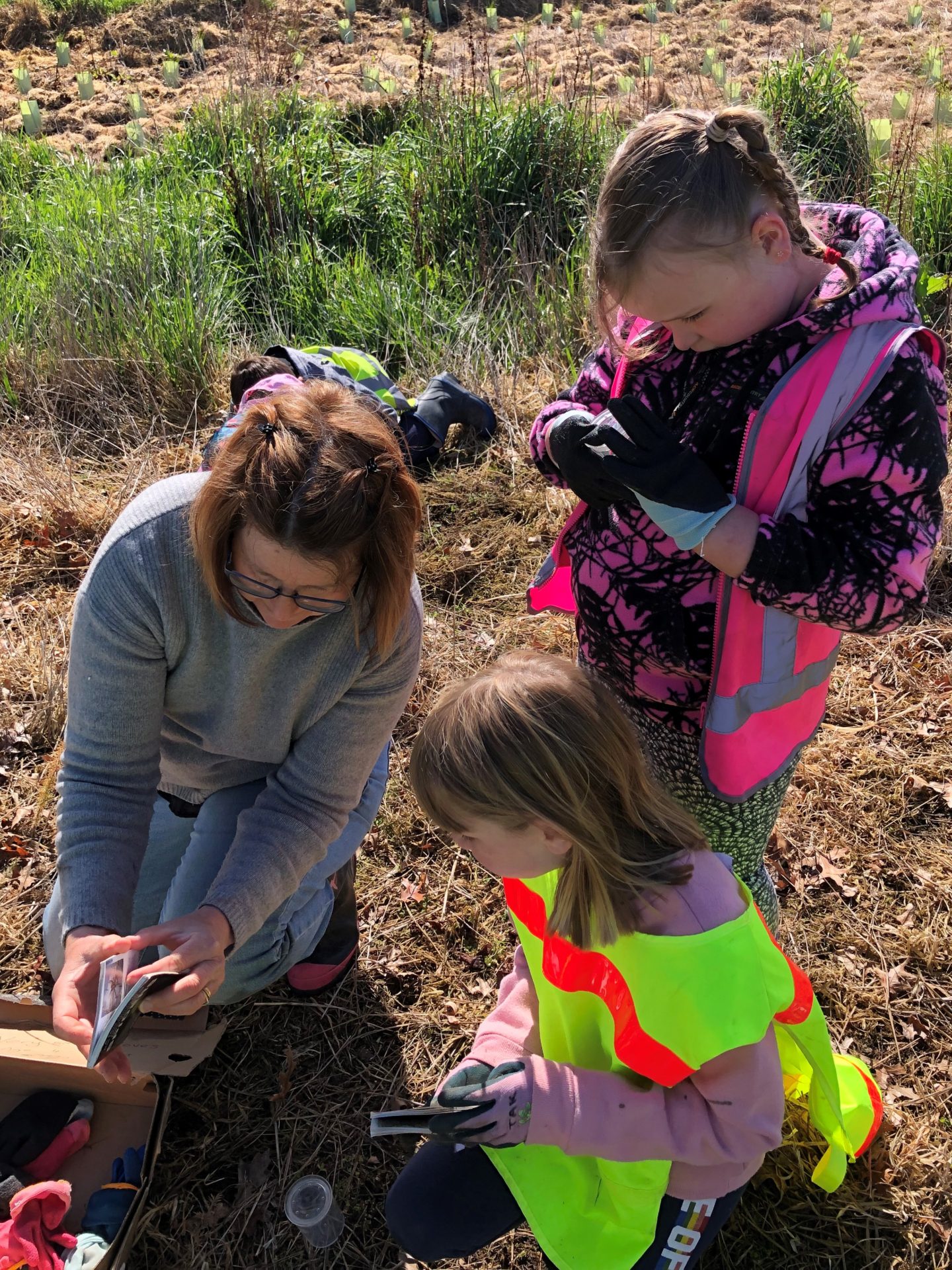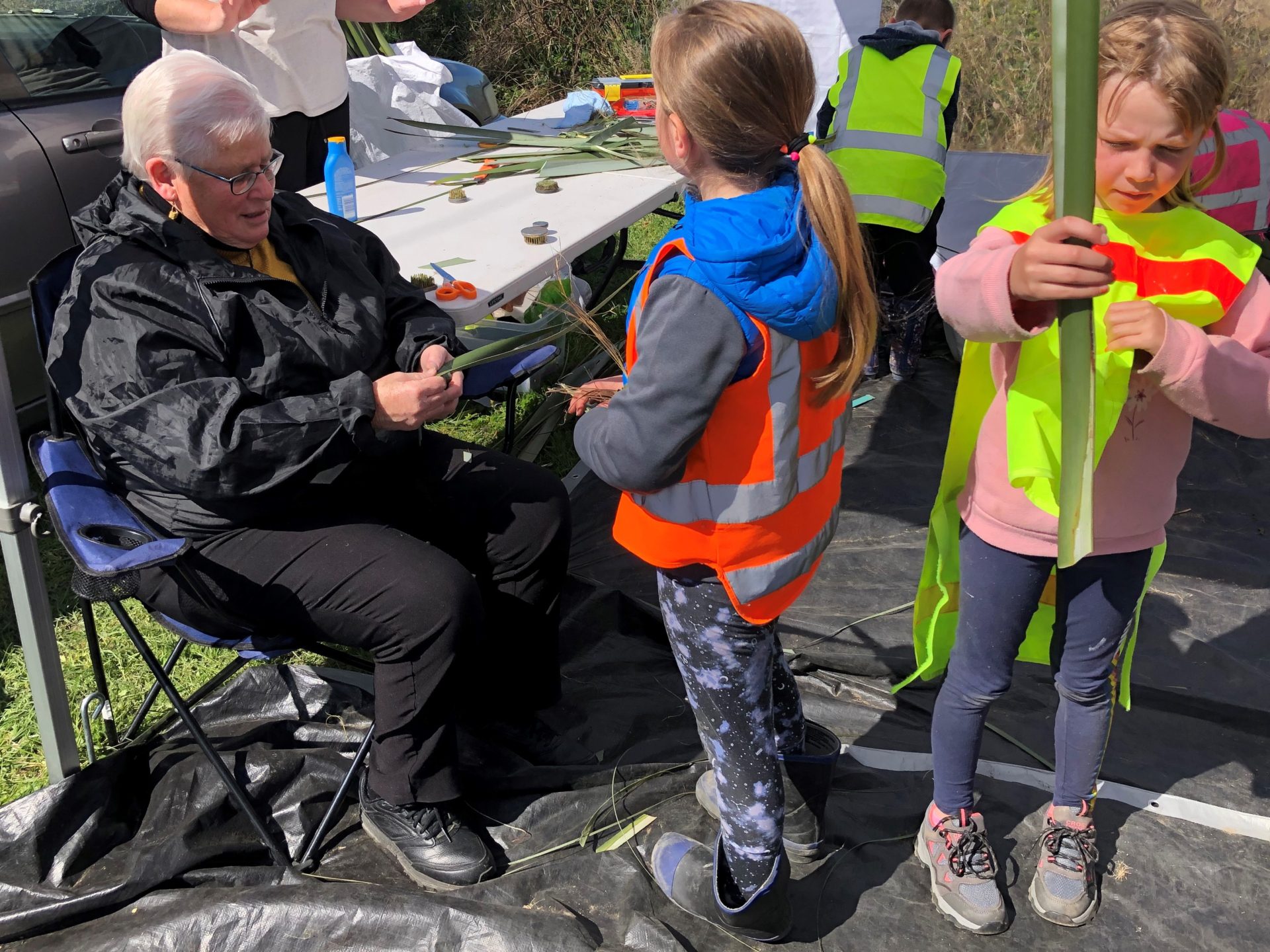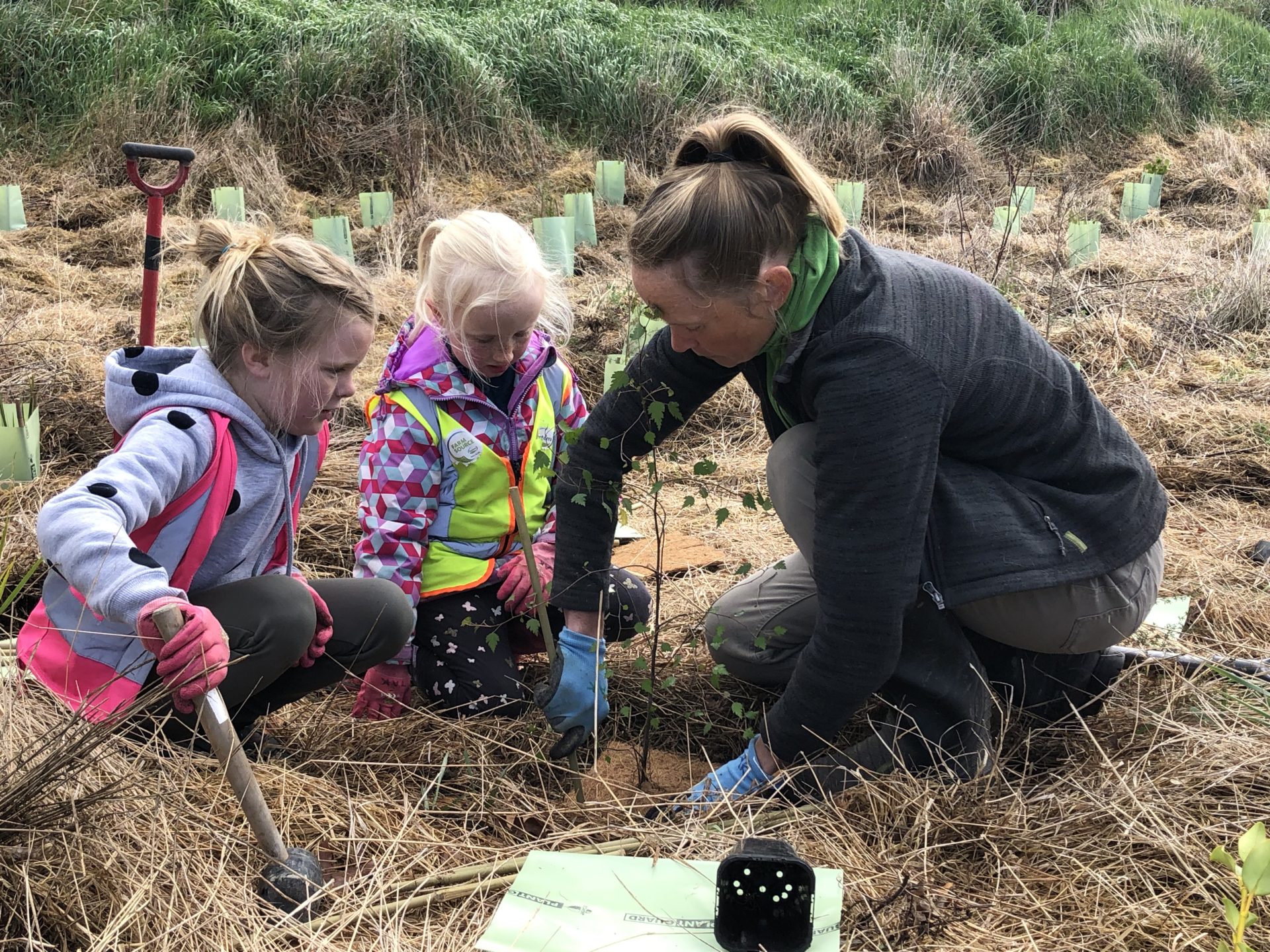Southbridge students bring biodiversity lessons into practice
Over 30 Year 2 and 3 students from Southbridge School last week took their classroom environmental learning into the field, when they joined a Kids Discovery Plant-Out Day, supported by Te Ara Kākāriki and Ellesmere Sustainable Agriculture Inc (ESAI).
Judging by their faces, the students had a terrific experience as they helped to plant 400 eco-sourced native trees along the Lee waterway on Peter Legg’s property, which is a restoration project funded by ESAI’s Tinaku project.

Southbridge School teacher Simon Dakers said the Plant Out day had been “inspiring” for his students who had been learning about biodiversity and sustainability in the classroom.
He said the Plant-out day worked well as practical support to the classroom learning and he hoped they would be able to carry out some more native planting with the kids at the school in the future.
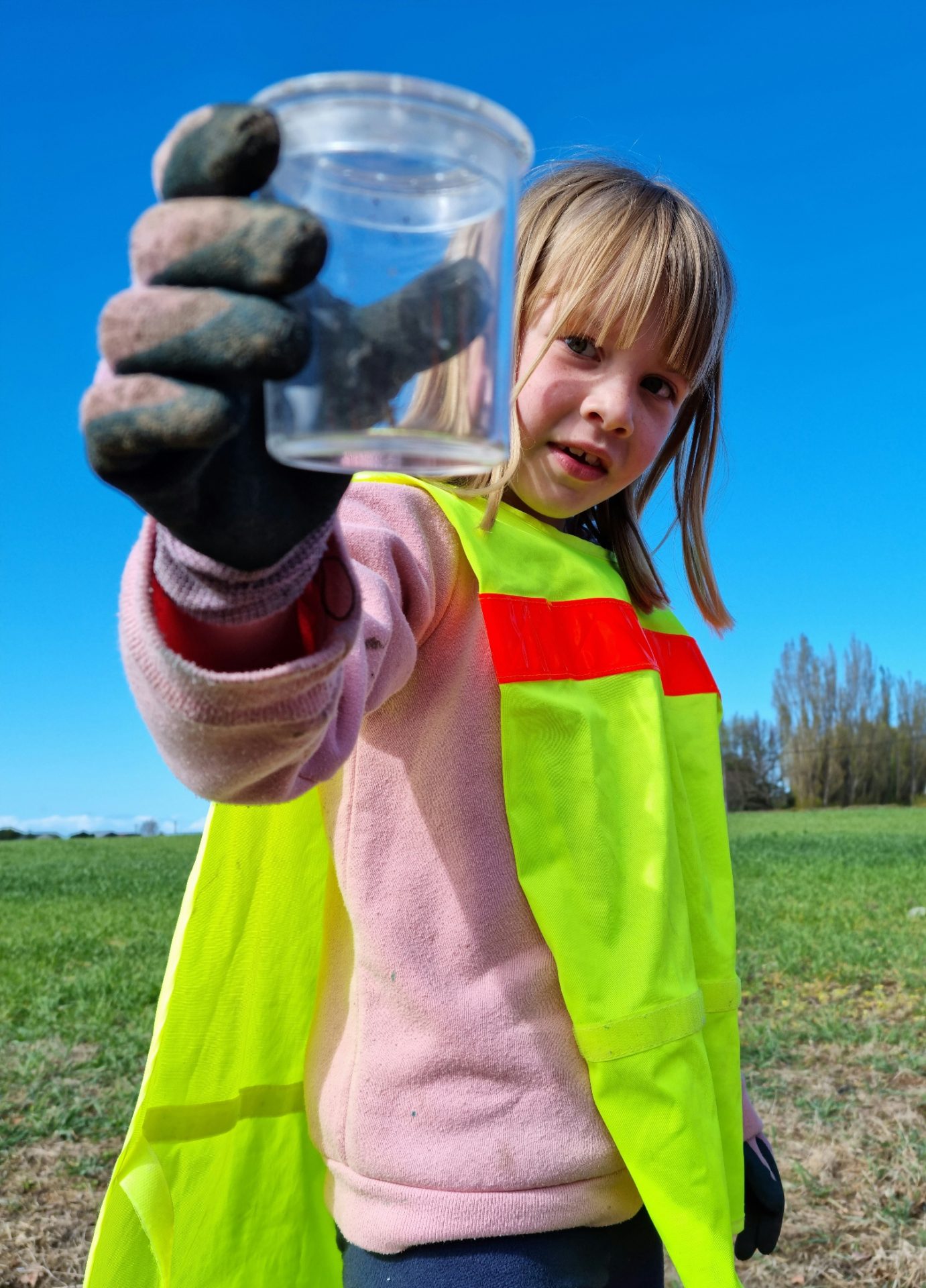
The day included a variety of learning opportunities, but the Bug Hunt with Matt Stanford was a particular success.
The Senior Youth Engagement Advisor from ECan explained the importance of invertebrates in the ecosystem and then asked the students to search through the vegetation for specimens.
The children then added their discoveries to the iNaturalist app which allows their findings to be logged and confirmed by scientists. (See the results here https://inaturalist.nz/projects/lee-river-tak-planting-sites)

Another highlight of the day was a weaving workshop with Taua Daphne’s from Ngāti Moki Marae, who helped the children to create ika and putiputi from harakeke.
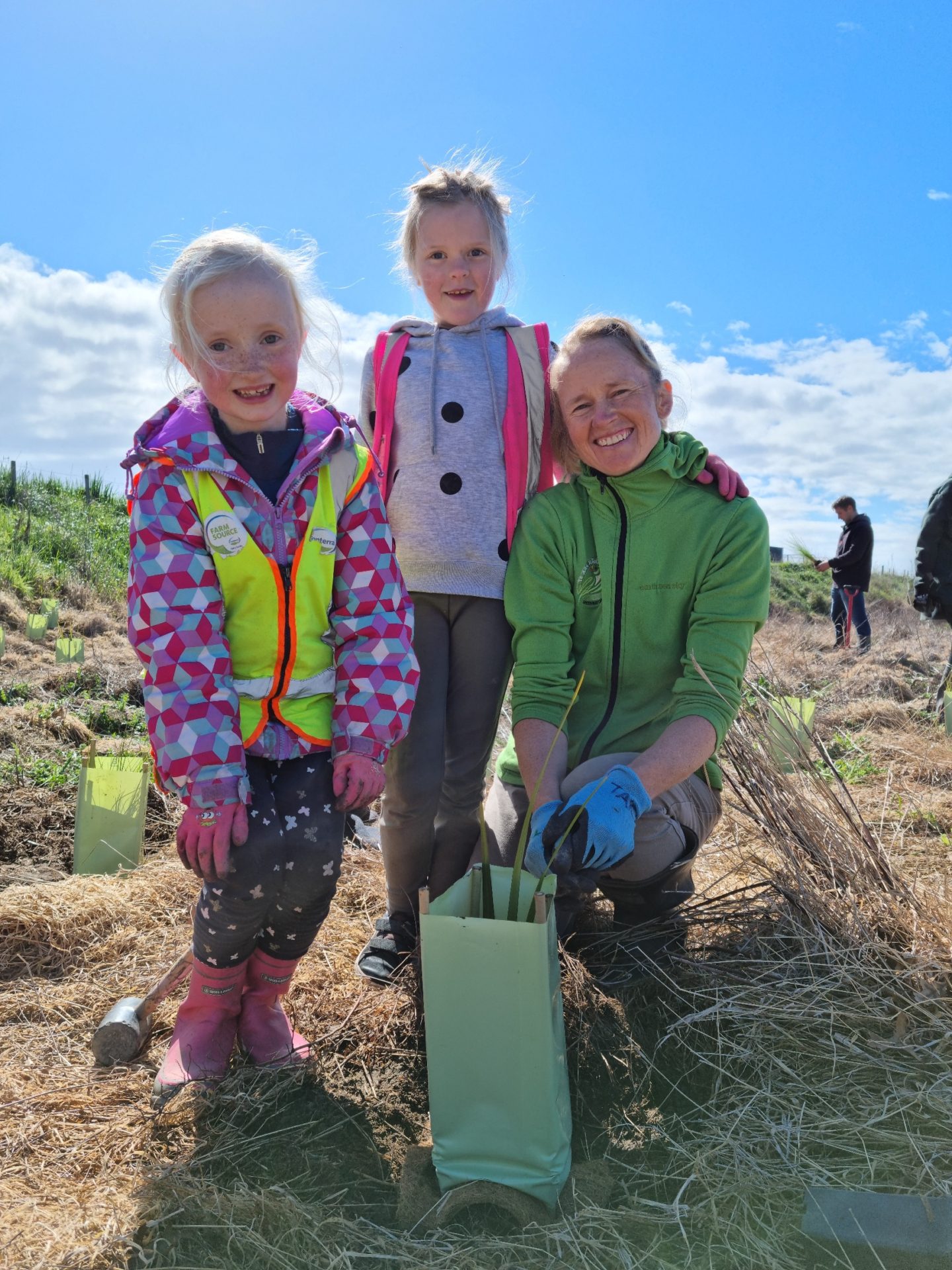
Project Tinaku coordinator Johanna Blakely was grateful to landowner Peter Legg, for allowing “this amazing project to take place on his property and give local children the opportunity to get involved in a restoration project so close to home”.
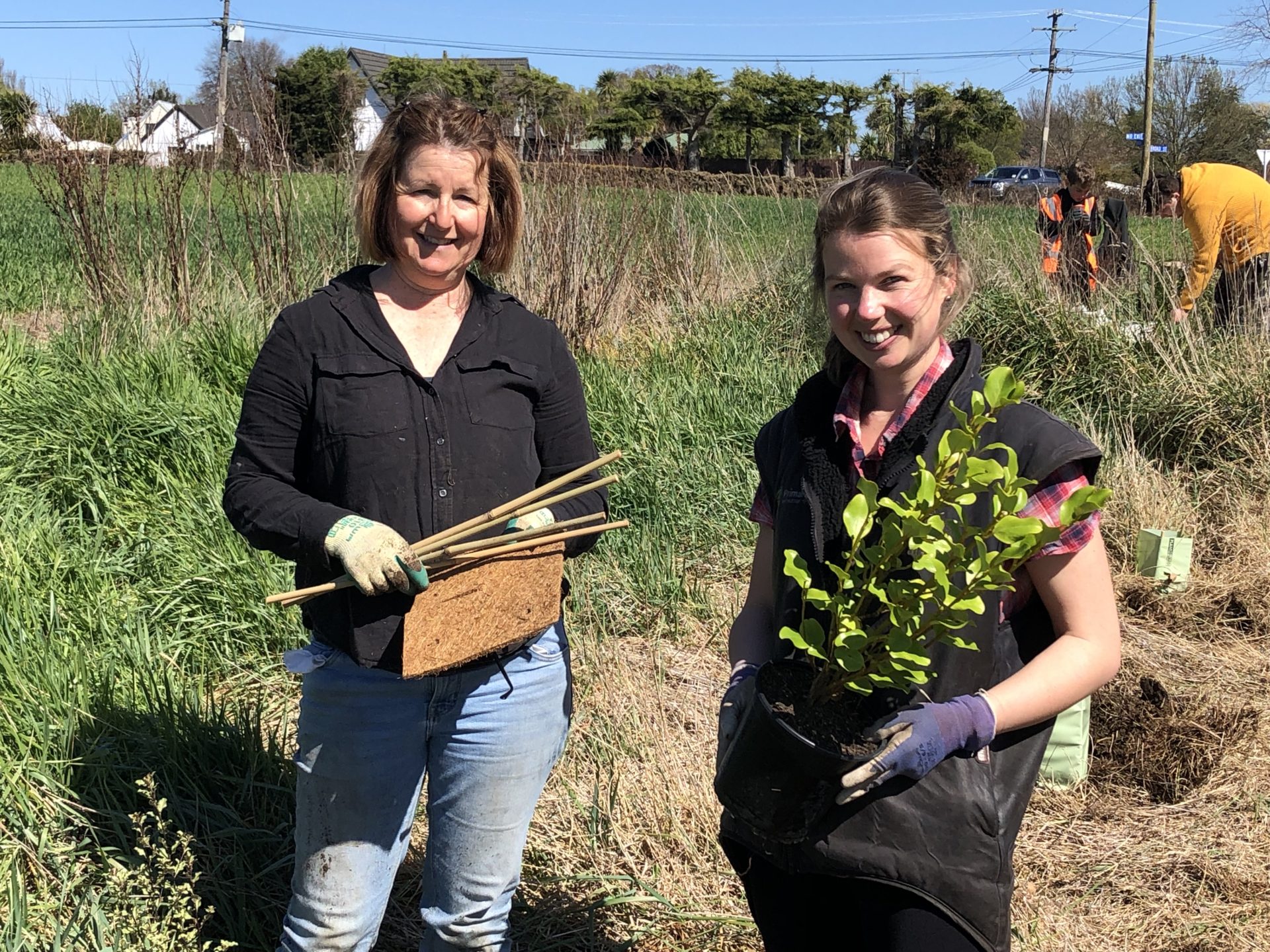
Blakely also thanked the students, school staff, parents and Te Ara Kākāriki crew for making the day a terrific success, along with ESAI volunteers Jo Fearn, Jo Benny, Tom Hilston and Rueben Hunt.
“We are grateful to everybody who assisted on the day and of course for the funding provided by the Jobs for Nature programme, from the Ministry of Primary Industries, which enables the Tinaku project to carry out valuable restoration projects to improve the biodiversity of our region, but also provide opportunities for students to engage with natural spaces.”
